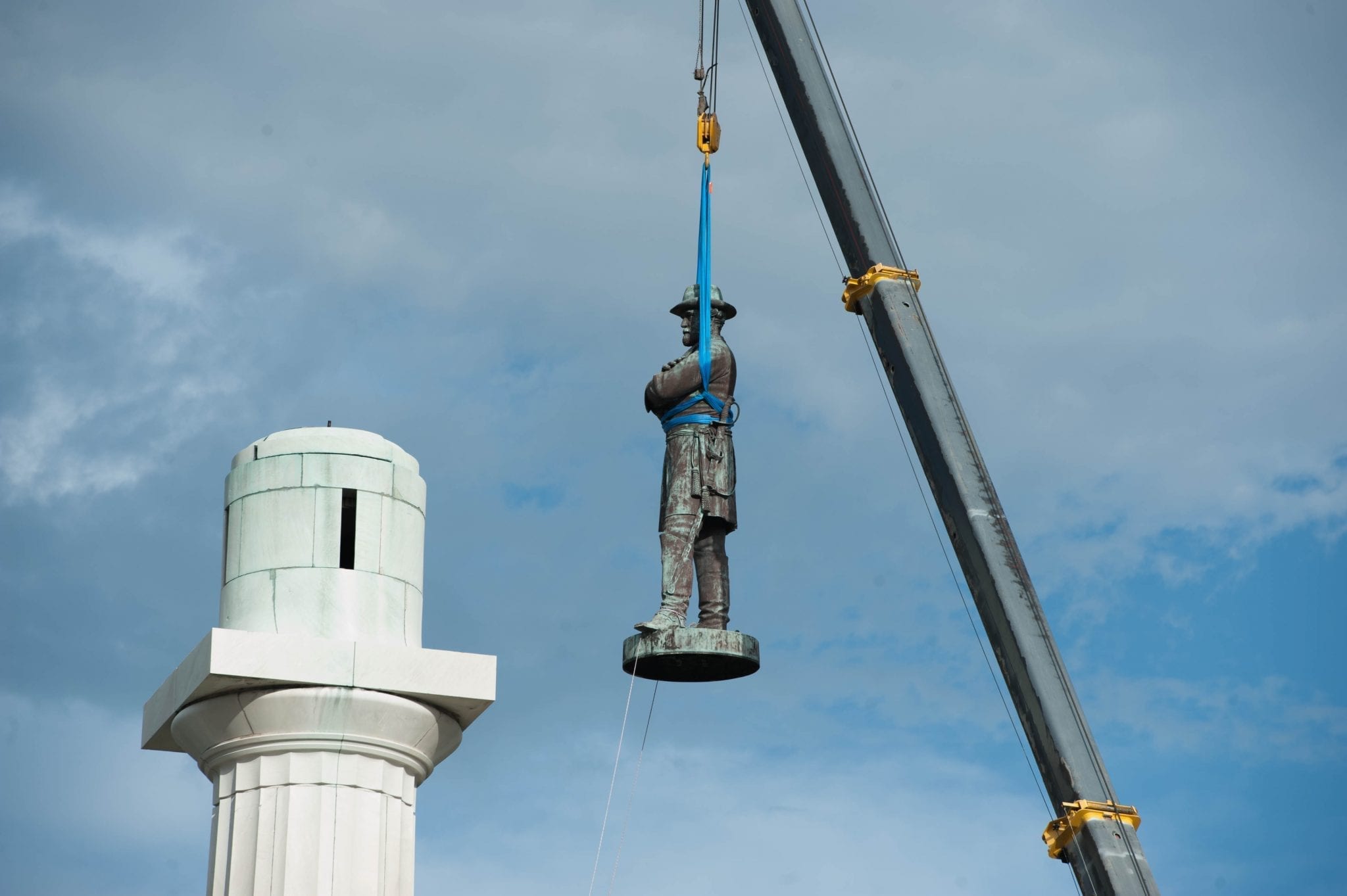Tensions over the removal of Confederate war memorials in New Orleans have escalated into a House bill.
The state’s House Committee on Municipal, Parochial and Cultural Affairs voted 10-8 to advance a a proposal entitled ‘The Louisiana Military Memorial Conservation Act.’
Now known as House Bill 71, the Act would “forbid the removal, renaming or alteration of any military monument of any war, including “the War Between the States,” that is situated on public property.”
The Act follows the decision of New Orleans’ mayor and city council to remove a number of Confederate war memorials from public spaces. The mayor and his proponents claim the monuments essentially glorify slavery and may even play party to a white supremacist agenda.
In a statement, the city said the memorials “failed to appropriately reflect the values of diversity and inclusion that make New Orleans strong today.”
Many of the statues were erected facing prominent boulevards and alongside historic buildings as part of the South’s ‘Lost Cause’ initiative following the conclusion of the Civil War.
Mayor Mitch Landrieu stressed the decision wasn’t political, saying, “This is about showing the whole world that we as a city and as a people are able to acknowledge, understand, reconcile – and most importantly – chose a better future.”
“We can remember these divisive chapters in our history in a museum or other facility where they can be put in context,” said Landrieu. “And that’s where these statues belong.”

However, the Mayor didn’t specify when the memorials and monuments might be moved to a museum or other historic facility. The ones that have been taken off public ground have more or less disappeared.
“I don’t care if we have white supremacy carved in stone and the word slavery. Can’t we just grow up over this? Can we?” asked Brenda O’Brock of Shreveport, LA.
The initiative to rid New Orleans of its Confederate icons has set some residents of the majority-black city on edge. Their diverse views are reflected in the testimonies of their political leaders, who have been debating the proposed Act as well as the removals since the beginning of the week.
Baton Rouge representative Patricia Smith, whose constituents are largely African-American, wasn’t so sure.
“I’ve grown up in a cloud of racism,” said Smith, who is 71 years old. “I really don’t see too many people who look like [O’Brock] … take to task these white supremacists.”
O’Brock replied by telling the elderly Smith to “get over it.”
Another representative, Steve Jones of St. Bernard Parish, said, “Tearing down the three main monuments in the city is as if Rome was to tear down statues because the Roman Empire wasn’t very politically correct.”
As of May 3rd, House Bill 71 had 10 votes in its favor and 8 opposed.
Sources
Bill to stop Confederate monument removals, put power in ‘people’s hands’ passes committee
New Orleans begins controversial removal of Confederate monuments


Join the conversation!